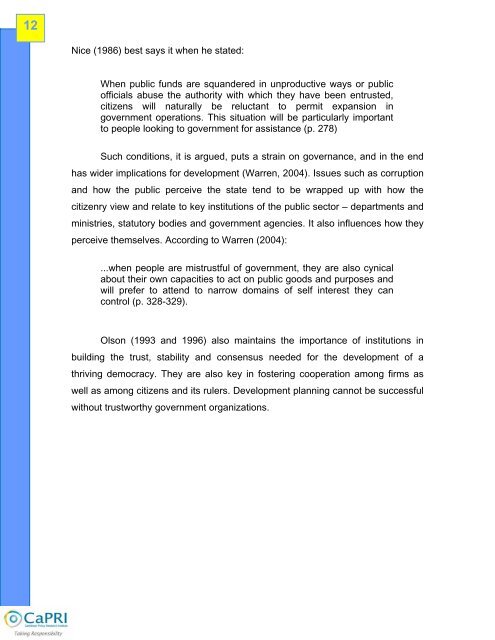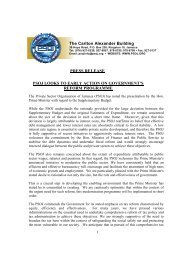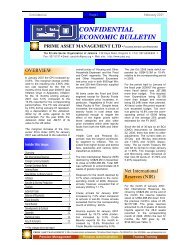A LANDSCAPE ASSESSMENT OF POLITICAL CORRUPTION IN ...
A LANDSCAPE ASSESSMENT OF POLITICAL CORRUPTION IN ...
A LANDSCAPE ASSESSMENT OF POLITICAL CORRUPTION IN ...
You also want an ePaper? Increase the reach of your titles
YUMPU automatically turns print PDFs into web optimized ePapers that Google loves.
12<br />
Nice (1986) best says it when he stated:<br />
When public funds are squandered in unproductive ways or public<br />
officials abuse the authority with which they have been entrusted,<br />
citizens will naturally be reluctant to permit expansion in<br />
government operations. This situation will be particularly important<br />
to people looking to government for assistance (p. 278)<br />
Such conditions, it is argued, puts a strain on governance, and in the end<br />
has wider implications for development (Warren, 2004). Issues such as corruption<br />
and how the public perceive the state tend to be wrapped up with how the<br />
citizenry view and relate to key institutions of the public sector – departments and<br />
ministries, statutory bodies and government agencies. It also influences how they<br />
perceive themselves. According to Warren (2004):<br />
...when people are mistrustful of government, they are also cynical<br />
about their own capacities to act on public goods and purposes and<br />
will prefer to attend to narrow domains of self interest they can<br />
control (p. 328-329).<br />
Olson (1993 and 1996) also maintains the importance of institutions in<br />
building the trust, stability and consensus needed for the development of a<br />
thriving democracy. They are also key in fostering cooperation among firms as<br />
well as among citizens and its rulers. Development planning cannot be successful<br />
without trustworthy government organizations.







